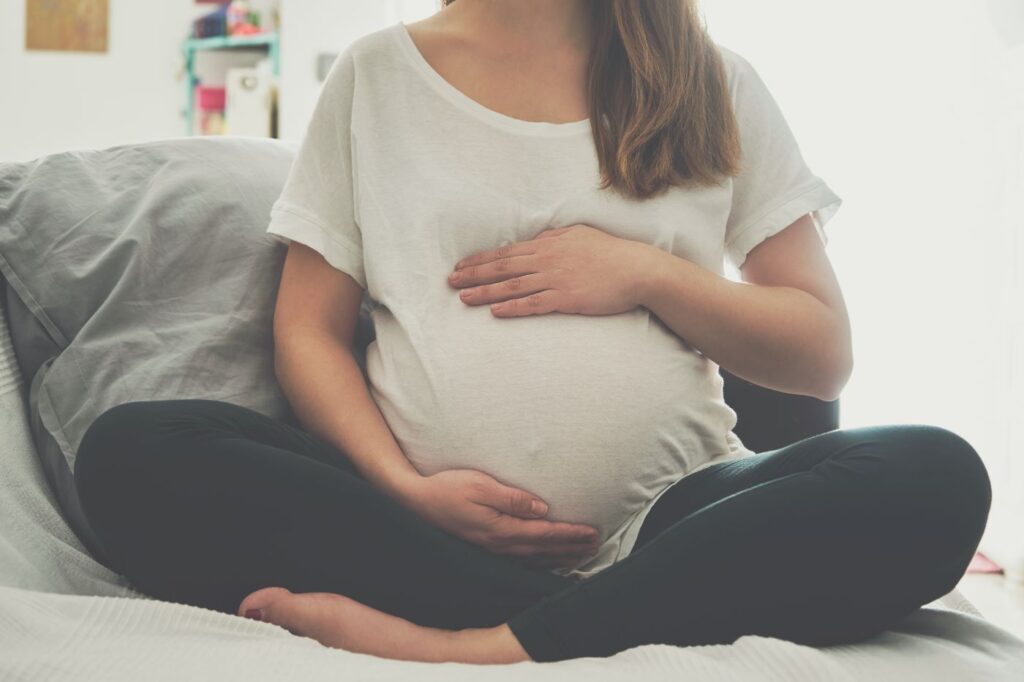Two cases before the Texas Supreme Court, Cox v. Texas and Zurawski v. Texas, demonstrate the need for states with limits on abortion to either clarify or expand state statutes to protect children with fetal abnormalities from targeted termination. Abortion advocates, as seen in the Texas cases, are willing to make exaggerated claims regarding health risks to the mother during pregnancy in order to classify fetal abnormalities discovered in utero as maternal health emergencies.
Medical exemptions exist in states with abortion bans to allow termination in unique circumstances where the health of the mother is at risk. Cox v. Texas is the first case in which a currently pregnant woman, Kate Cox, seeks an abortion through a lawsuit since the passage of Roe v. Wade in 1973. Ms. Cox’s physician, a plaintiff in both cases, argues that Ms. Cox’s pregnancy should fall under a medical exemption, allowing Ms. Cox to procure an abortion in Texas. Molly Duane, representing both lawsuits before Texas’s highest court, argues that the fear of imprisonment renders Ms. Cox’s physician unable to use reasonable medical judgment in deciding whether to proceed with abortions.
Kate Cox and her physician alleged that continuing her twenty-week pregnancy posed a threat to her life and constitutional rights as a Texan. However, Ms. Cox was not seeking an abortion due to a threat to her life. She was seeking an abortion, by her own admission, to terminate the life of a disabled child diagnosed with Trisomy 18. Ms. Cox was not concerned about an imminent risk to her health should she continue her pregnancy. Rather, her concern is that the child’s disability will unduly inconvenience, burden, and otherwise trouble her.
According to Ms. Cox, she
Start your day with Public Discourse
Sign up and get our daily essays sent straight to your inbox.does not want to continue the pain and suffering that has plagued this pregnancy. I do not want to put my body through the risks of continuing this pregnancy. I do not want to continue until my baby dies in my belly, or I have to deliver a stillborn baby, or one where life will be measured in hours or days, full of medical tubes and machinery. Trisomy 18 babies who survive birth often suffer cardiac arrest or respiratory failure. I do not want to watch my baby arrive in this world only to suffer a heart attack or suffocation. I desperately want the chance to try for another baby, and want to access the medical care now that gives me the best chance at another baby.
Thankfully, the Texas constitution doesn’t protect feelings. It protects life.
For Ms. Cox, motherhood is a limited concept with a limited purpose. She is willing to undergo the typical risks of pregnancy, should the outcome be positive for her. However, any hint of an unwanted outcome for her makes the typical risks she is willing to assume in pregnancy suddenly untenable. She needs a trap door and expects the Texas constitution to support her desire to throw her child’s life away in order to preserve her bodily autonomy, comfort, and preferences for what her family should look like.
Luckily, the Texas Supreme Court understood the game that Molly Duane and the Center for Reproductive Rights were playing. The plaintiffs in Ms. Duane’s other case before the Texas Supreme Court, Zurawski v. Texas, argue for expansion of the medical exemptions allowed under state law. However, there was skepticism among the Texas Supreme Court justices that the plaintiffs in Zurawski v. Texas had appropriate standing, as none of the women are currently pregnant.
This is where Ms. Cox and her disabled child became a helpful pawn for Ms. Duane and her fellow abortion advocates. Ms. Cox filed a suit for an exemption to the abortion ban which was granted by a lower court on December 7, 2023. The Texas Attorney General requested that the Texas Supreme Court halt the exemption delivered on December 7. This action moved the case of Cox v. Texas to the Supreme Court late on the night of Friday, December 8.
Why, if Ms. Cox so desperately needed a life-saving abortion, did her physicians not rush her straight to the hospital on the night of December 7, exemption in hand? Was it because her representation, Ms. Duane, wanted the Texas Supreme Court to rule in her favor and therefore influence, whether in ruling or sentiment, the outcome of her other case, Zurawski v. Texas? The actions of the plaintiff and her own testimony prove that concern for maternal life was not the primary motivating issue in this case: it was the termination of a disabled child.
State lawmakers interested in preserving the rights of the unborn need to understand that abortion advocates will use any tool at their disposal to render state bans on abortion unconstitutional. Cox v. Texas may have used Kate Cox, specifically, to front an argument. But a closer look proves the goal of this case was always to render abortion bans unconstitutional under any circumstances.
The plaintiff’s document states that the state of Texas “cannot demand that a pregnant person sacrifice their life, their fertility, or their health for any reason, let alone in service of an unborn life, particularly where a pregnancy will not or is not likely to result in the birth of a living child with sustained life.”
Texas law does not require a pregnant woman to sacrifice her life, fertility, or health by continuing a pregnancy, which is why a medical exemption to the Texas abortion ban exists. Should a woman’s life indeed be in imminent danger, as the Texas Supreme Court has stated in its Cox v. Texas opinion, a woman’s physician should have full confidence that they can make a reasonable medical judgment to preserve the mother’s life, without threat of criminal or civil repercussions. Ms. Cox’s pregnancy, according to the Texas Supreme Court, did not fall under a medical exemption.
Ms. Cox’s pregnancy did not threaten her “life, fertility, or health.” It threatened her comfort and pitted her interests against those of her disabled, unborn child.
For now, Texas law forbids taking the life of someone who threatens our comfort. But states and pro-life advocates need to be vigilant. Public sentiment is not with the Texas ruling in this case, as media outlets have showcased erroneous and exaggerated facts surrounding this issue.
Ms. Cox’s pregnancy did not threaten her “life, fertility, or health.” It threatened her comfort and pitted her interests against those of her disabled, unborn child.
Disabled people are a protected class under United States law. This protection must extend to people in the womb. A disabled baby does not suddenly become worthy of protection when drawing its first breath. The tide is turning against people with disabilities, despite years of protection in the West as a result of our Judeo-Christrian legal and ethical framework. Will parents be able to argue that their disabled toddler is a threat to their life and liberty in the future?
That future is already here in places like the Netherlands and Canada, where medical euthanasia can be used for children with disabilities. State lawmakers must not let that reality darken our American doors, even in the midst of increasing ambivalence towards disabled lives, whether in the womb or out of it.
If Ms. Cox is unwilling to parent a disabled child, she should terminate her parental rights upon birth, giving others the chance to show charity to a small but greatly treasured life. To hold that child’s hand as he or she drew a final breath would be to sit on hallowed ground. My own son is profoundly disabled, born blind with complex orofacial defects and brain abnormalities. He does not speak or walk. He is fed with a tube. I am living Ms. Cox’s worst nightmare. I am thankful every day for the chance to sacrifice my comfort for that of a small, disabled boy.
My story should not be an anomaly, but the rule. I am not any more heroic than anyone else. The law can make heroes of us all.
Image by SianStock and licensed via Adobe Stock.













